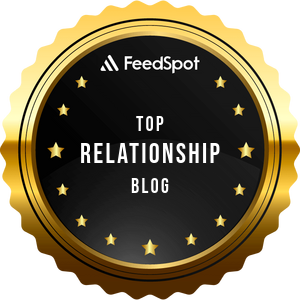
My partner, Scott and I were recently part of an Imago Relationships Therapy Workshop. We learned so much in this workshop and like many couples, the best—and worst—of that fire often shows up in our relationship. Even with good intentions, our fight, flight, or freeze instincts can hijack our connection.
You’ve likely heard about the reactive part of the brain referred to as the “old brain,” “lizard brain,” or “survival brain.” When it takes over, we’re no longer thoughtful or empathetic—we’re simply reacting to what feels like a threat. Even subtle emotional triggers can create reactions in even the most connected couples.
How Subtle Triggers Activate Big Reactions
When we think of threats, we picture obvious dangers: swerving to avoid a car crash, surprising a mama moose on a trail, or stepping barefoot on a snake (yes, I screamed!). These responses are instinctive—and helpful.
But our brain also reacts to subtle, relational cues. A tone, a glance, a shift in posture—any of these can set off a full-blown nervous system alarm. Our brain doesn’t just track physical danger; our brain stores every past hurt, fear, or betrayal. And when one of those buried memories is triggered, we can react before we even know what’s happening.
By the time we’re aware we’ve been triggered, we’ve already reacted. And in that state, our partner doesn’t feel like a teammate—they can feel like a threat.
For me - my fight mode is fully activated! …Or, I could even freeze. Either way—I’m freaking out!
Strong words, I know—but they reflect the raw truth of our nervous system's response. That’s why conflicts can escalate so fast—it’s not about logic, it’s about survival.
The Neuroscience of "Flipping Your Lid"

When we’re triggered, we lose access to the brain regions that handle empathy, self-regulation, and problem-solving. Dr. Daniel Siegel, a clinical psychiatry professor at UCLA and the executive director of the Mindsight Institute calls this “flipping your lid.” And suddenly, we’re left wondering:
- Where did that come from?
- Who even are we right now?
- Which version of us is the real one?
This can be a scary place to be and impact our connection in relationships, so it’s important to learn how to repair after this response has happened.
From Reactivity to Repair: What The Imago Relationships Therapy Workshop Taught Us
Scott and I learned to understand what’s really going on in our brains during times of conflict. It wasn’t a dry science lecture—instead the workshop invited us to ask questions like:
- Why am I so reactive at this moment?
- What is this strong reaction really about?
- Where does this response I’m having really come from?
Even though I’ve known this information for years, the Imago Relationships Therapy workshop helped me apply it in real-time, with myself and in my relationship.
For example, just yesterday, my partner made an offhand comment in response to something I asked him to do. Almost instantly, both our nervous systems picked up on our deeper fears and old patterns. I felt the following from this response in my nervous system and in my body:
- Heat in my core
- Tension in my throat
- A strong urge to leave—or punish. (That last one is hard to admit, especially as a therapist, but it’s real.)
But this time, I caught it. (I took that pause needed)
- I accessed my inner observer. I reminded myself:
- I am not this reaction. I have a choice.
- Attack and escalate—or pause and try to connect?
I was able to take a breath, ground myself, and walk over to my partner. I put my hands on his arms and asked him to make eye contact and look at me.
I acknowledged Scott’s stress and shared how I was feeling as well - all without blame. Mind you, we were still feeling a little edgy, but we stayed connected. And, later we were able to revisit the conversation with more warmth and understanding.
Building New Habits: From Escalation to Connection

This shift—from reacting to responding—is one of the biggest gifts of the workshop. We’re not perfect (not even close!), but we’re much more aware now. Sometimes, my partner is even the one who says:
- “We’re off track. Let’s do that Dialogue before this spirals.”
Other times, one of us starts mirroring. Even if mirroring is sarcastic at first, we continue as it begins to slow us down. (Pro tip: Mirroring works best when it’s not weaponized. 😉)
As a therapist, clients often ask if I mess up in my relationship and they’re often surprised and share the following:
- "Wait—you mess up too?"
- And, I share the truth: "Yes, I'm a therapist, in a relationship, and I mess up just like you and other partners."
The constant lesson is in not just knowing what to do, but actually doing it in the moment. These are two very different things, and important to stay mindful of and practice daily.
The great news is that since the Imago Relationships Therapy workshop, responding has become just a little easier, and reacting hasn’t been as frequent. That’s progress worth celebrating!
Tips on How to Connect Deeper With Your Partner: Bringing Play Into The Relationship Lessons at Home

Bring some play into the picture at home with this lighthearted, but meaningful exercise that will help you and your partner explore reactivity with curiosity—and laughter. (Name, assign and gift your reactive animals to help one another)
Tip 1: Name Your Own Reactive Animals
- How do you respond under stress?
- Fight?
- Are you a charging bull or hissing cat?
- Flight?
- Are you a darting hummingbird or nervous squirrel?
- Freeze?
- Are you a still possum or a hiding chameleon?
- Fight?
Once you’ve determined where you land in the fight, flight or freeze scenarios - share with your partner why you chose those animals.
Tip 2: Assign Reactive Animals to Each Other
- With kindness and humor, describe what animal you associate with your partner’s reactions.
- Fight = territorial rooster?
- Flight = startled deer?
- Freeze = frozen possum?
Be sure to keep it light. This is about understanding, not judgment in your relationship.
Tip 3: Gift Each Other a Calm Animal Spirit
- Now, gift your partner with a calm animal spirit that most represents them when they’re at their best - when they’re calm, centered, and loving.
- A wise elephant?
- A peaceful dolphin?
- A loyal golden retriever?
Even better - purchase a plush version of your partner’s calm animal spirit as a tangible reminder of who you each are in those calm moments to one another.
Why Lightness in Relationships Helps Break Reactive Patterns
This practice helps couples recognize reactive patterns without shame—and gives them language to reconnect when conflict arises.
- Instead of saying: “You’re doing that thing again!”
- You might say: “Uh-oh, the porcupine just showed up!”
- Or, pause and say: “My mad lion wants to roar right now. I’m going to take a breather.”
Even small shifts in awareness can change the outcome of a conflict. The more we practice when we’re calm, the easier it becomes to show up with love when it matters most.
Real Change Happens in the Relationship Micro-Moments

It’s tempting to think transformation comes from big breakthroughs—but in my experience, the real shifts in relationships happen in the tiny, daily choices:
- The breath you take instead of snapping.
- The softening of your voice when you want to yell.
- The playful naming of a reactive animal instead of launching into criticism.
The Imago Relationships Workshop gave us tools, but it’s the practice at home that has made the difference. I’m still learning, still stumbling—but I’m also growing. And I’m grateful.
So here’s to choosing connection over protection in your relationship, one moment at a time together. Thanks for being here.
If you and your partner are struggling with emotional triggers and reacting vs. responding, we're here to help. Check out our virtual and in-person Imago Relationships Workshops and Imago Relationships Therapy.
Discover more about Imago with our Imago Professional Membership, Imago Professional Facilitators, Imago Professional Training, and Imago Insights Education.
 NicholeHart is a Certified Imago Relationship Therapist with over two decades of experience helping couples reconnect, grow, and better understand the dynamics that keep them stuck. Blending warmth with practical insight, she supports couples in turning conflict into connection and building the kind of partnership where both people feel deeply seen.
NicholeHart is a Certified Imago Relationship Therapist with over two decades of experience helping couples reconnect, grow, and better understand the dynamics that keep them stuck. Blending warmth with practical insight, she supports couples in turning conflict into connection and building the kind of partnership where both people feel deeply seen.
Nichole offers weekly sessions, intensives, and Imago workshops in the Colorado mountains. She works virtually with couples in Texas and Colorado, and will soon begin seeing couples in person in Colorado as well.
Discover more at: https://www.hartcounselingservices.com/



